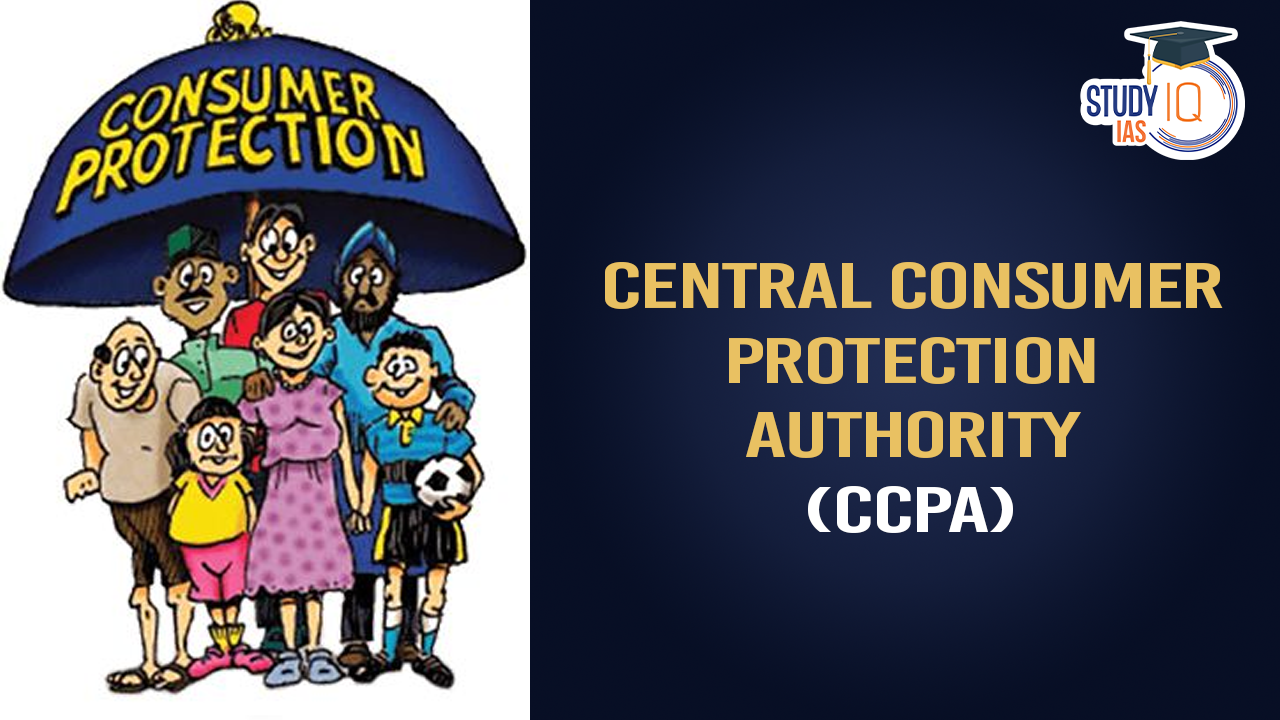Table of Contents
Context
- The Central Consumer Protection Authority (CCPA) has imposed a fine of Rs 3 lakh on an edtech platform for issuing “false and misleading” advertisements.
- The advertisements claimed 144 selections in the Reserve Bank of India Grade B exam 2023.
Central Consumer Protection Authority (CCPA)
- Central Consumer Protection Authority is a regulatory authority set up in 2020 under Section 10(1) of the Consumer Protection Act, 2019
- Nodal Ministry: The Ministry of Consumer Affairs, Food and Public Distribution.
- Objective: To promote, protect and enforce the rights of consumers as a class.
Composition
- The CCPA is led by a Chief Commissioner, with two commissioners overseeing goods and services respectively.
- An Investigation Wing, headed by a Director General, forms part of the CCPA.
- Additionally, District Collectors are empowered to probe consumer rights violations, unfair practices, and deceptive advertising.
Term of Office
The Chief Commissioner and Commissioner serve a term of five years from their start date or until reaching 65 years of age, whichever comes first. They are eligible for reappointment.
Qualifications
- Qualifications for Chief Commissioner: Candidates must have at least 25 years of professional experience and be knowledgeable in fields like law, public affairs, administration, economics, business, commerce, industry, finance, management, technology, advertising, public health, medicine, food, product safety, standardisation, quality management, or other relevant areas.
- Qualifications for Commissioner: A minimum of 20 years of professional experience is required in similar fields as mentioned for the Chief Commissioner. The person should also demonstrate ability, integrity, and standing.
Powers And Functions of CCPA
- The CCPA has the authority to independently inquire into or investigate consumer rights violations and unfair trade practices, act on complaints, or follow central government directives.
- It can mandate the recall of goods or cessation of services deemed hazardous or unsafe.
- The authority is empowered to order refunds for recalled goods or services and to halt unfair practices detrimental to consumer interests.
- For false or misleading advertisements, the CCPA can impose penalties of up to ₹10 lakh and a two-year imprisonment for first offenders, escalating to ₹50 lakh and five years for repeat offences.
- Endorsers of such deceptive ads may face a ban on endorsements for up to one year, extending to three years for subsequent violations.
- The CCPA can file complaints against violations of consumer rights or unfair practices with District, State, or National Consumer Disputes Redressal Commissions.
| Consumer Protection Act, 2019 |
Significant features of the Act
|


 Bharat Bandh 9 July 2025: Over 25 Crore ...
Bharat Bandh 9 July 2025: Over 25 Crore ...
 Elon Musk’s America Party: A New Chapt...
Elon Musk’s America Party: A New Chapt...
 Bihar Assembly Election 2025: Complete G...
Bihar Assembly Election 2025: Complete G...





















